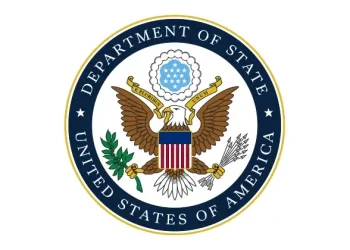U.S. District Judge Amy Baggio, appointed by President Biden, has ordered the release of Odalis Jhonatan Martinez-Velasquez, a male illegal alien from Mexico, despite his detention being consistent with a presidential executive order and ICE policy.
The decision has sparked controversy over judicial authority and immigration enforcement policies.
Background on the Case
The case involves Odalis Jhonatan Martinez-Velasquez, who entered the United States illegally in 2023. He was lawfully detained on June 2, 2025, in a male detention facility as per President Trump’s January 20, 2025 Executive Order.
This order aims to protect women from gender ideology extremism by prohibiting biological males from being housed in women’s detention centers.
The Department of Homeland Security (DHS) has expressed concerns that Judge Baggio’s decision undermines ICE’s commitment to maintaining safe environments for women in custody.
DHS emphasizes that only immigration judges have the authority to make release or detention decisions regarding individuals like Velasquez.
Policy Implications
This case highlights ongoing tensions between judicial authority and immigration enforcement policies. The executive order signed by President Trump reflects a stance against what is described as “radical gender ideology,” aiming to ensure secure detention environments for women.
Assistant Secretary Tricia McLaughlin of DHS stated that Velasquez was placed in a men’s facility following the executive order’s guidelines. She criticized the judge’s decision as ignoring biological realities and subverting efforts to restore commonsense to the immigration system.
Immigration Enforcement Challenges
- The case underscores conflicts between judicial decisions and federal immigration policies.
- DHS maintains that only immigration judges should decide on detainee releases.
- The executive order aims to protect women in custody by enforcing sex-based housing policies.
- This situation may influence future interpretations of executive orders related to gender and detention.
Domestic Policy Debates
- The decision fuels debates over gender identity policies within federal detention facilities.
- It raises questions about balancing judicial authority with executive directives on immigration enforcement.
- The outcome could impact broader discussions on gender ideology in U.S. policy-making circles.
- This case may set precedents for how courts handle similar issues moving forward.
Additional Reading
To Sum Up
This case exemplifies the complex interplay between judicial rulings and federal policy directives concerning immigration enforcement and gender identity issues.
As debates continue over these critical topics, stakeholders must navigate legal frameworks while addressing societal concerns about safety and rights within detention facilities across the United States.
Sources: U.S. Department of Homeland Security.
Prepared by Ivan Alexander Golden, Founder of THX News™, an independent news organization delivering timely insights from global official sources. Combines AI-analyzed research with human-edited accuracy and context.








